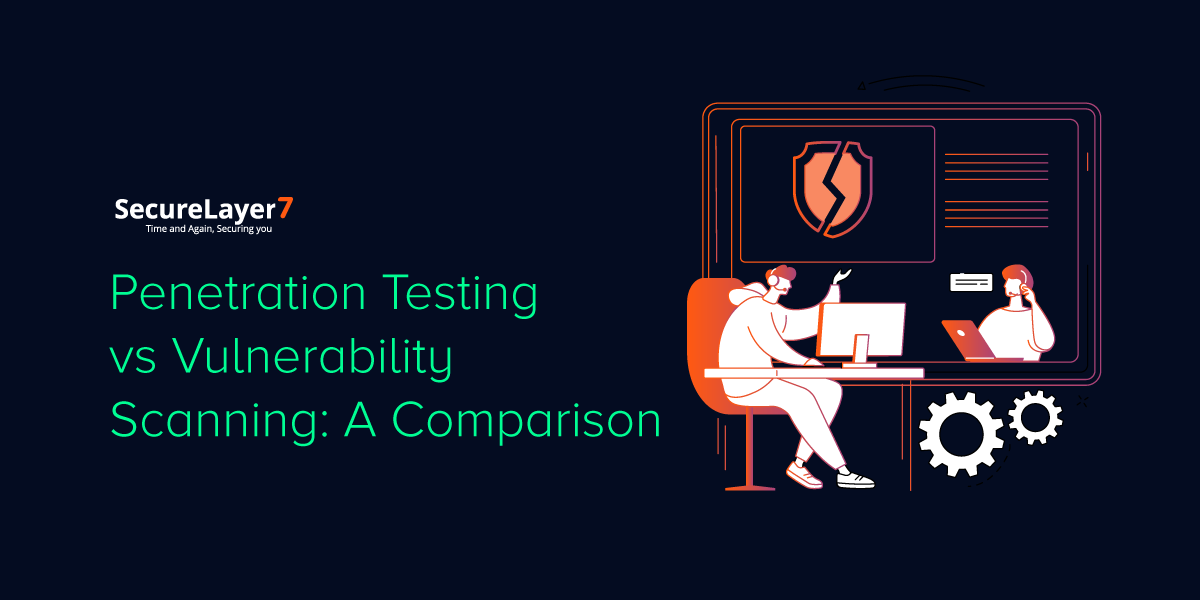
Penetration Testing vs Vulnerability Scanning: A Comparison
April 26, 2023
How Much Does a Penetration Test Cost?
April 28, 2023
DevSecOps is an approach where development, security, and operations teams work together to ensure that security is integrated into every phase of the software development lifecycle.
In this blog, we provide an overview of DevSecOps for beginners.
What is DevSecOps?
DevSecOps is a set of practices integrating security into the software development lifecycle. The focus is on moving security to the left side, which means incorporating security practices earlier in the development process rather than waiting until the end.
DevSecOps aims to improve security by making it a shared responsibility of everyone involved in the development process. This includes developers, security engineers, and operations teams.
By integrating security into the development process, teams can identify and fix security issues earlier, reducing overall risk.
Why is DevSecOps important?
As companies increasingly rely on software to run their businesses, the need for secure software becomes more important. Cybersecurity threats are evolving and becoming more sophisticated, and traditional security measures may not be enough to fend them off.
- DevSecOps provides a proactive approach to security rather than a reactive approach. By integrating security into the development process, teams can identify and mitigate security risks early, reducing the likelihood of security breaches and minimizing their impact.
- DevSecOps also helps foster collaboration and communication between teams. When security is integrated into every phase of the development process, it becomes a shared responsibility, and everyone is aware of security risks and how to address them.
What are the Benefits of DevSecOps?
Security is of paramount importance to any business today. Fortunately, DevSecOp’s focus on incorporating security at every stage is proving to be a secure approach to development while meeting the speed of today’s rapid release cycle.
The DevSecOps approach brings specific benefits.
1. Enhanced Application Security
DevSecOps involves a proactive approach to mitigating cybersecurity threats early in the development lifecycle. This means that development teams rely on automated security tools to test code on the fly and perform security audits without slowing down development cycles.
DevOps teams review, audit, test, scan and debug code at various stages of the development process to ensure the application passes critical security checkpoints.
When security vulnerabilities are uncovered, the application security and development teams work together to find code-level solutions to fix the problem.
2. Cross-team ownership
DevSecOps brings development and application security teams together early in the development process, creating a cross-team approach.
Instead of isolated, disparate workflows that stifle innovation and even create division between business units, DevSecOps enables teams to align early on, leading to cross-team adoption and more efficient team collaboration.
3. Streamline Application Delivery
Incorporating security early and often in the development cycle, automating as many security processes as possible, and streamlining reporting improve security and enable compliance teams to ensure that security practices promote rapid development cycles.
For example, let’s say a development team completes all initial development phases of an application, only to discover several security vulnerabilities just before the application goes into production. In this case, this can lead to a significant delay in delivery.
4. Limit Security Vulnerabilities
UDevSecOps integrates security practices into the entire DevOps process, ensuring that security is at the forefront of software development and deployment. This approach helps to identify and address security vulnerabilities early in the development process, minimizing the risk of security breaches and providing proactive protection for applications.
Implementing security measures mitigates risk and provide visibility to teams so they can quickly remediate when vulnerabilities are discovered.
One of the biggest benefits of DevSecOps is the creation of a streamlined, agile development process – an approach that, when implemented properly, can significantly limit security vulnerabilities.
Many of the processes, tasks, and services for cybersecurity testing can be easily integrated into the automated services of an application development or operations team.
By emphasizing a security-centric approach to the development process, organizations can eliminate unknown variables that will undoubtedly impact product release timelines.
How does DevSecOps work?
DevSecOps includes several key practices, including the following.
1. Continuous Integration and Continuous Deployment (CI/CD)
This practice involves automating software creation, testing, and deployment. CI/CD ensures that code is tested and deployed quickly and reliably, reducing the risk of security vulnerabilities.
2. Threat Modeling
This process identifies and assesses potential security threats and vulnerabilities. Threat modeling helps teams understand the risks and prioritize security measures accordingly.
3. Code Analysis
This method uses tools to examine the code for security vulnerabilities. Code analysis can identify potential security issues before the code is deployed, reducing the risk of security breaches.
4. Security Testing
This process involves testing software for security vulnerabilities. Security testing includes penetration testing, vulnerability scanning, and code reviews.
5. Compliance Monitoring
This practice involves monitoring software to comply with relevant security regulations and standards.
Compliance monitoring helps organizations meet regulatory requirements and protect themselves from legal and financial consequences.
Conclusion
DevSecOps is a methodology that promotes security throughout the software development lifecycle. It is about integrating security into every phase of the development process and making it a shared responsibility of everyone involved in the development process.
DevSecOps aims to improve security through early detection and mitigation of security risks to reduce the likelihood of security breaches and minimize their impact.
By adopting DevSecOps, organizations can improve the security of their software and reduce the risk of security breaches.
To get more insights into DevSecOps, connect with SecureLayer7.